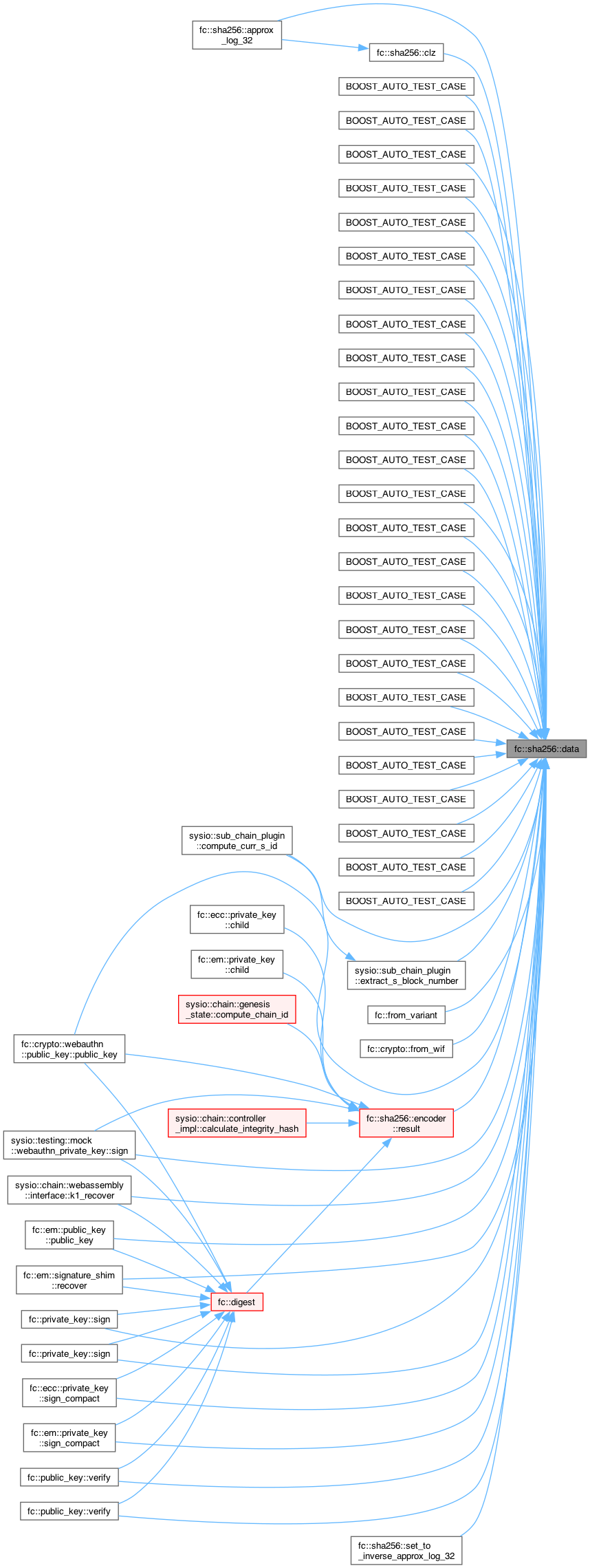#include <sha256.hpp>
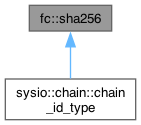
Classes | |
| class | encoder |
Public Member Functions | |
| sha256 () | |
| sha256 (const string &hex_str) | |
| sha256 (const char *data, size_t size) | |
| string | str () const |
| operator string () const | |
| const char * | data () const |
| char * | data () |
| size_t | data_size () const |
| uint32_t | pop_count () const |
| uint16_t | clz () const |
| uint32_t | approx_log_32 () const |
| void | set_to_inverse_approx_log_32 (uint32_t x) |
Static Public Member Functions | |
| static sha256 | hash (const char *d, uint32_t dlen) |
| static sha256 | hash (const string &) |
| static sha256 | hash (const sha256 &) |
| template<typename T > | |
| static sha256 | hash (const T &t) |
| static double | inverse_approx_log_32_double (uint32_t x) |
Public Attributes | |
| uint64_t | _hash [4] |
Friends | |
| template<typename T > | |
| T & | operator<< (T &ds, const sha256 &ep) |
| template<typename T > | |
| T & | operator>> (T &ds, sha256 &ep) |
| sha256 | operator<< (const sha256 &h1, uint32_t i) |
| sha256 | operator>> (const sha256 &h1, uint32_t i) |
| bool | operator== (const sha256 &h1, const sha256 &h2) |
| bool | operator!= (const sha256 &h1, const sha256 &h2) |
| sha256 | operator^ (const sha256 &h1, const sha256 &h2) |
| bool | operator>= (const sha256 &h1, const sha256 &h2) |
| bool | operator> (const sha256 &h1, const sha256 &h2) |
| bool | operator< (const sha256 &h1, const sha256 &h2) |
Detailed Description
Definition at line 11 of file sha256.hpp.
Constructor & Destructor Documentation
◆ sha256() [1/3]
| fc::sha256::sha256 | ( | ) |
Definition at line 14 of file sha256.cpp.

◆ sha256() [2/3]
|
explicit |
◆ sha256() [3/3]
|
explicit |
Definition at line 15 of file sha256.cpp.

Member Function Documentation
◆ approx_log_32()
| uint32_t fc::sha256::approx_log_32 | ( | ) | const |
Approximate (log_2(x) + 1) * 2**24.
Detailed specs:
- Return 0 when x == 0.
- High 8 bits of result simply counts nonzero bits.
- Low 24 bits of result are the 24 bits of input immediately after the most significant 1 in the input.
- If above would require reading beyond the end of the input, zeros are used instead.
Definition at line 111 of file sha256.cpp.

◆ clz()
| uint16_t fc::sha256::clz | ( | ) | const |
Count leading zero bits
Definition at line 173 of file sha256.cpp.


◆ data() [1/2]
| char * fc::sha256::data | ( | ) |
Definition at line 32 of file sha256.cpp.
◆ data() [2/2]
| const char * fc::sha256::data | ( | ) | const |
◆ data_size()
|
inline |
Definition at line 23 of file sha256.hpp.
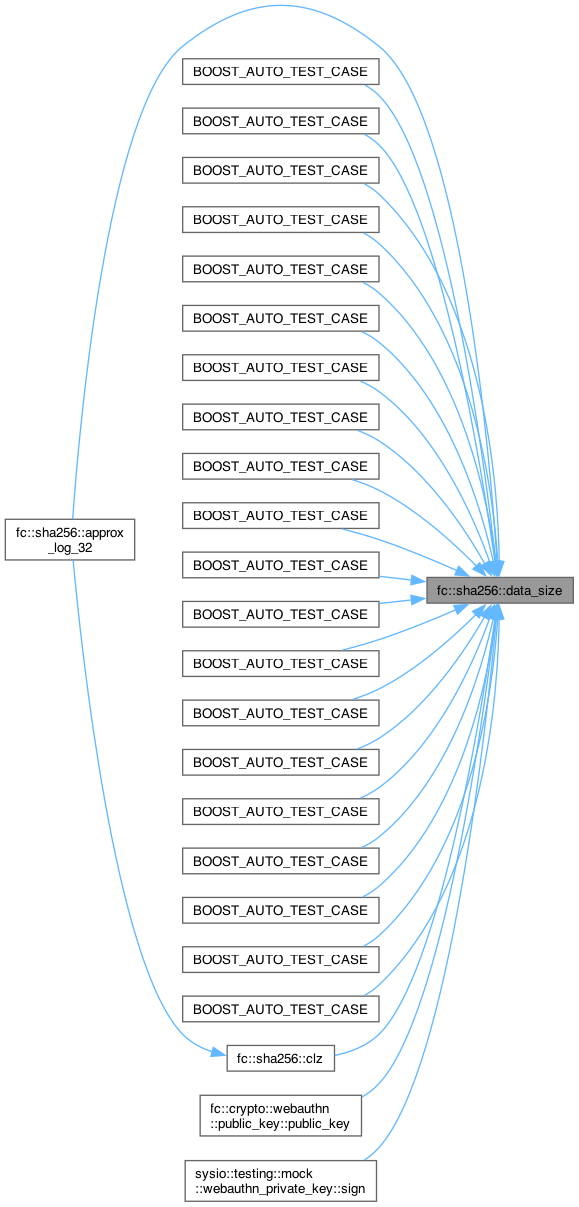
◆ hash() [1/4]
Definition at line 44 of file sha256.cpp.

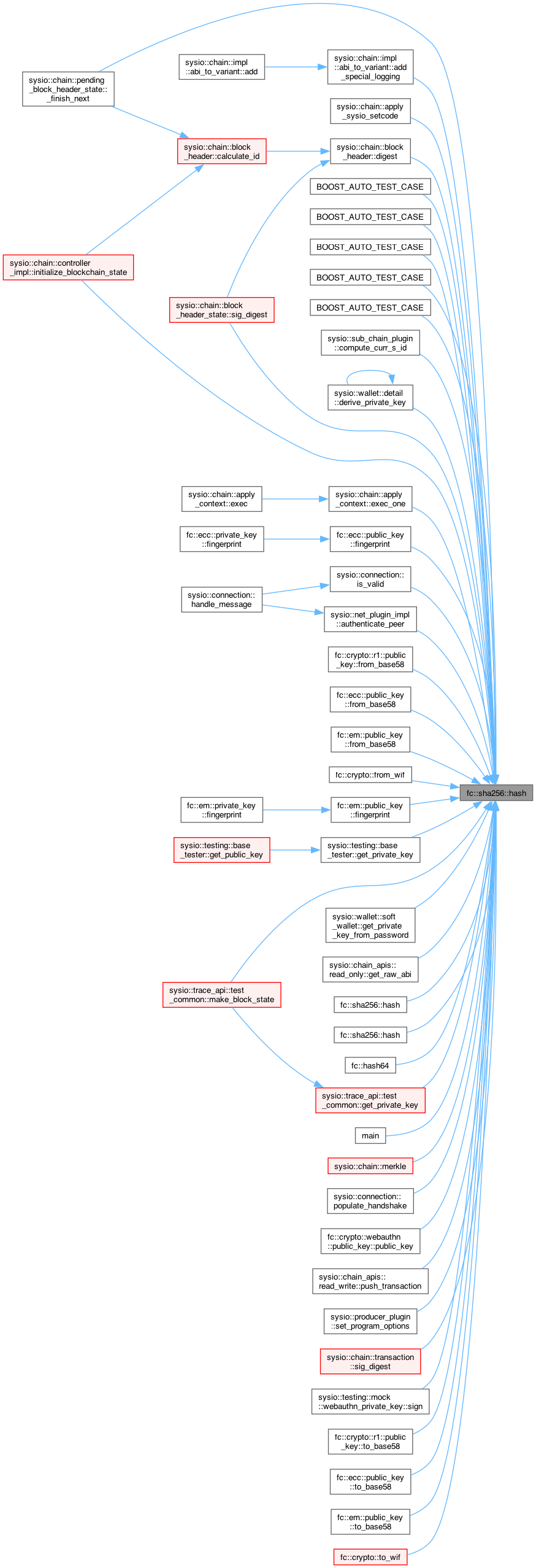
◆ hash() [2/4]
◆ hash() [3/4]
◆ hash() [4/4]
Definition at line 30 of file sha256.hpp.

◆ inverse_approx_log_32_double()
|
static |
◆ operator string()
| fc::sha256::operator string | ( | ) | const |
Definition at line 29 of file sha256.cpp.
◆ pop_count()
|
inline |
◆ set_to_inverse_approx_log_32()
| void fc::sha256::set_to_inverse_approx_log_32 | ( | uint32_t | x | ) |
Definition at line 136 of file sha256.cpp.

◆ str()
| string fc::sha256::str | ( | ) | const |
Definition at line 26 of file sha256.cpp.

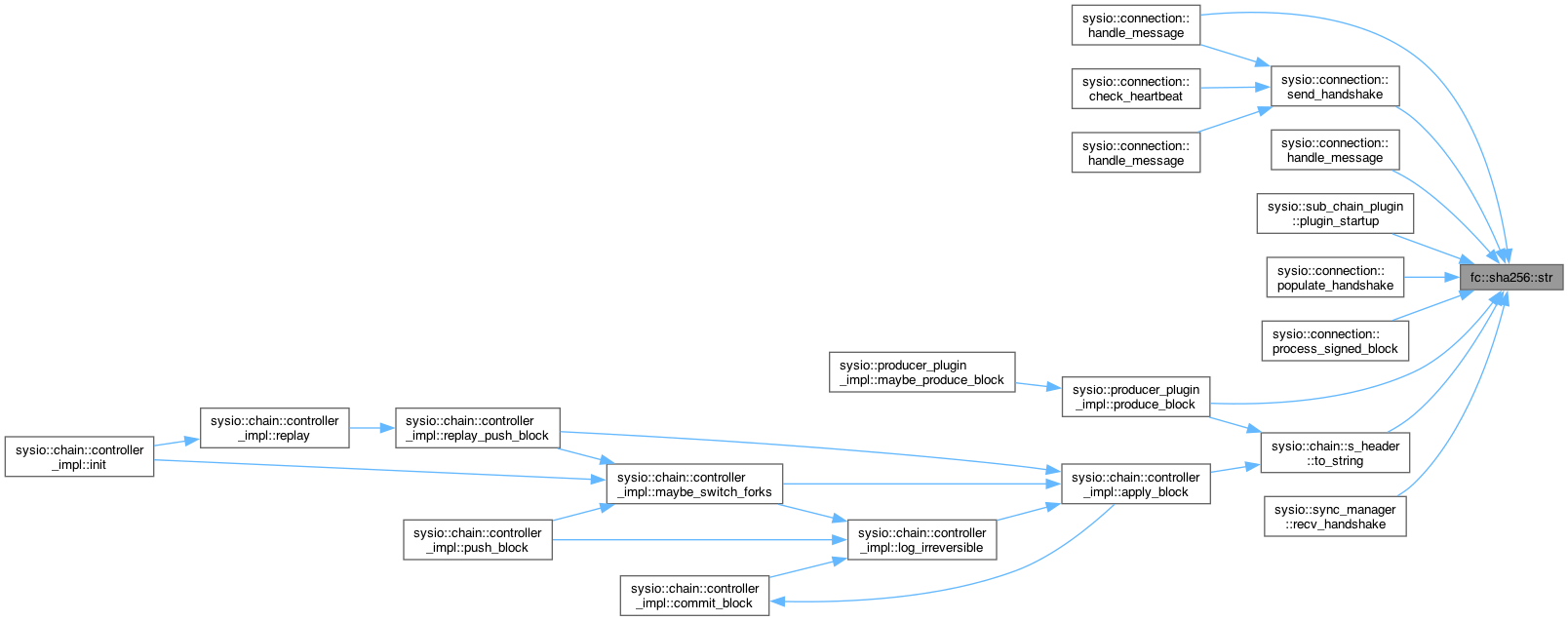
Friends And Related Symbol Documentation
◆ operator!=
Definition at line 98 of file sha256.cpp.
◆ operator<
Definition at line 95 of file sha256.cpp.
◆ operator<< [1/2]
Definition at line 71 of file sha256.cpp.
◆ operator<< [2/2]
Definition at line 54 of file sha256.hpp.
◆ operator==
Definition at line 101 of file sha256.cpp.
◆ operator>
Definition at line 92 of file sha256.cpp.
◆ operator>=
Definition at line 89 of file sha256.cpp.
◆ operator>> [1/2]
Definition at line 76 of file sha256.cpp.
◆ operator>> [2/2]
Definition at line 60 of file sha256.hpp.
◆ operator^
Definition at line 81 of file sha256.cpp.
Member Data Documentation
◆ _hash
| uint64_t fc::sha256::_hash[4] |
Definition at line 100 of file sha256.hpp.
The documentation for this class was generated from the following files:
- libraries/fc/include/fc/crypto/sha256.hpp
- libraries/fc/src/crypto/sha256.cpp

